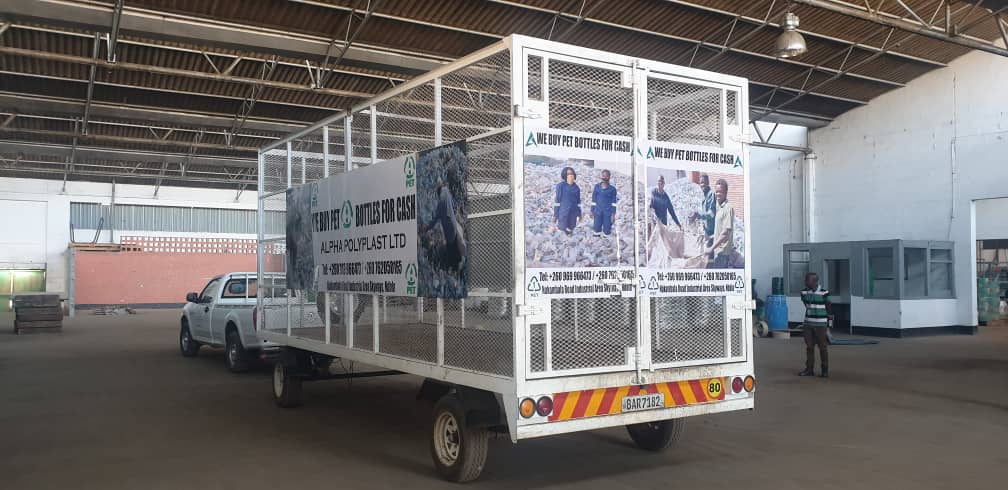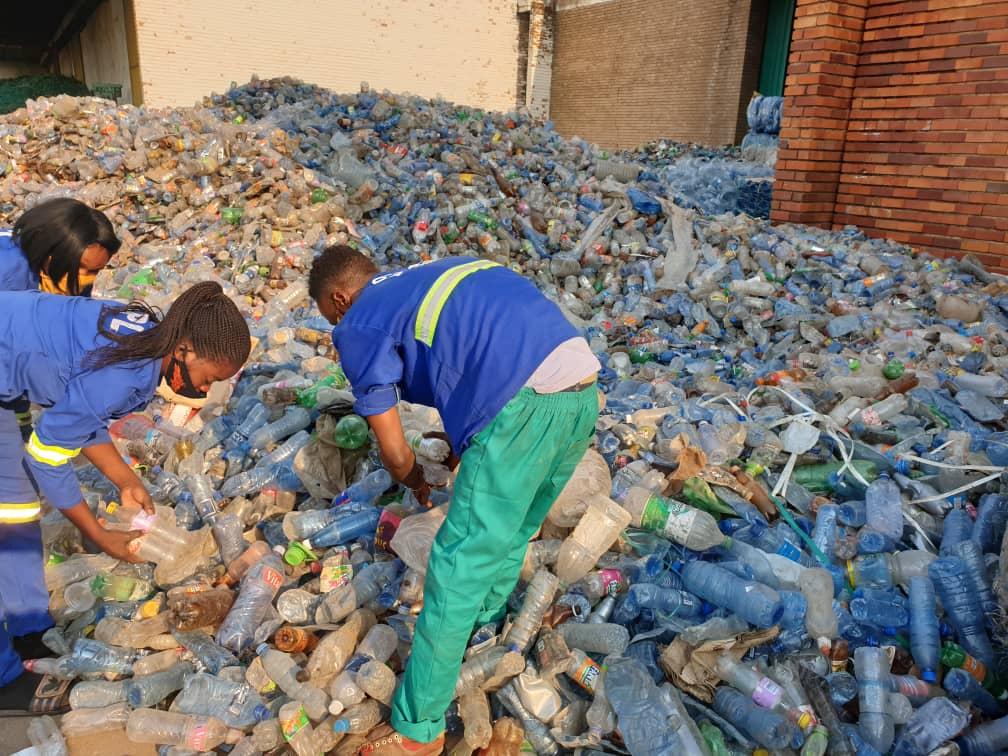Transforming waste into value: Engaging waste pickers in Zambia to reduce plastic waste and emissions
Alpha Polyplast recycles used PET bottles to produce flakes and polyester strappings. One of the first recycling companies in Zambia, it protects the environment and creates livelihood opportunities for low-income communities. The company has also been featured in an Inclusive Business Impact Story.
How does Alpha Polyplast, through its waste-to-value model, contribute to global climate change mitigation goals?
Alpha Polyplast contributes to climate change mitigation goals in several ways:
- Diverting PET bottles from landfills drastically reduces CO2 emissions: 1 kg of virgin PET granules from fossil fuel is equal to 1,577 kg CO2 reduction in carbon emissions.
- When we recycle old bottles, those bottles do not take space up in landfills, thereby retaining more land for people and development.
- We save crude oil because PET is produced from crude oil as a byproduct. By recycling, we avoid unnecessary processing of crude oil to produce virgin PET resin.
- By recycling PET into downstream products we save using virgin PET resin for those same products, thereby saving considerable energy when fractionating crude oil into different distills and then cracking the distill into polymers such as polyester (PET). This process requires tremendous heat and energy. Recycling polyester uses considerably less energy to convert the same polyester back into an article without using virgin PET resin.
For EACH ton of recycled PET, Alpha saves:
- 5.7 square meters of landfill space. Alpha has saved 46,979m2 of space in landfills up until 2020.
- 3.8 barrels of crude oil. Alpha has saved 31,319 barrels of oil up until 2020.
- 7800 kW heating energy. 64,287,600 KW of heating energy have been saved up until 2020.
Do you think that investors are attracted to inclusive businesses such as yours which have both a social and environmental impact?
Yes indeed, there is considerable interest from many private investors and independent funds who consider recycling and adding value to waste as an attractive investment which helps mitigate the world's pollution problems. Many corporates want to be seen to help in this cause as part of CSR, and some are investing in these businesses.
Is Alpha Polyplast partnering with beverage companies to help them achieve their environmental goals and reduce their footprint? If so, how?
We cooperate with the Coca-Cola group here in Zambia and are working together with them on the waste PET collection efforts. In fact, we have an agreement with Coca-Cola, who compensate us for every ton of waste PET bottles collected by our company and processed. Alpha also collects waste bottles generated from some beverage companies in Zambia by paying them a value per ton. We provide a great service to the country and to the polluters but only Coca-Cola compensates us; we need more help in this area to increase our footprint and also that of helping the environment. Typically, the government should be helping with a levy payment to recycling companies such as Alpha.

What are the main challenges you have identified for inclusive businesses working at the intersection between social impact and environmental action, and how has your business overcome them?
Recycling is a tough business and to be successful it requires funding, so the value of social impact and result of a better environment is achieved. Third world countries such as Zambia have no help whatsoever in this area.
Alpha has overcome the challenges by being lean in operations and using its own and borrowed funds to sustain the business.
In your opinion, how could policymakers promote global climate goals by improving the framework conditions for a circular economy in Zambia?
The government can start off by providing direct and indirect incentives for a circular business such as ours. The government should spend more money on garbage collection and establish rules on source-based systems collecting garbage, while also introducing transfer stations. Our company presented a formidable MRF proposal five years ago to the City Council of Lusaka (the largest city with two million people), and the proposal was never approved due to internal politics. This plant could have significantly improved the landscape of the city and created more recycling businesses.
